FOR IMMEDIATE RELEASE
September 19, 2024
EGLE Media Office, EGLE-Assist@Michigan.gov, 517-284-9278
EGLE announces $267 million in MI Clean Water grants to rebuild Michigan’s water infrastructure
State invests in dozens of local governments and water systems, protecting public health and the environment
New storm sewers and green infrastructure in Oakland County, lead water service line replacements in Marquette, and water main replacements in South Haven are among more than $267 million in state grants recently awarded to Michigan cities, villages, and townships to protect public health and Michigan’s world-class water resources.
“Every Michigander deserves access to clean, safe water and as our state’s most precious natural resource, we have to do more to protect it,” said Governor Gretchen Whitmer. “Since I took office, we have made the largest investments ever to build or fix water infrastructure. Together, we replaced tens of thousands of lead pipes, upgraded sewer systems to reduce flooding, and protected our lakes, streams, and waterways. Today’s grants will upgrade water infrastructure in cities and towns across the state, from West and Southeast Michigan all the way to the U.P. We will keep making tangible investments in infrastructure that make a real difference in people’s lives so parents can give their kids a glass of water from the tap and know that it is safe.”
Seventy percent of Michiganders are served by more than 1,000 community wastewater systems and a similar percentage get drinking water from community water systems. Those systems often struggle to find resources to address legacy issues like aging drinking water and storm water facilities and emerging challenges like per- and polyfluoroalkyl substances (PFAS) “forever chemicals.” The MI Clean Water Plan offers support to communities and water systems through the Drinking Water State Revolving Fund (DWSRF), Clean Water State Revolving Fund (CWSRF), and the American Rescue Plan Act (ARPA) to address those issues, ensuring healthy drinking water and protection of Michigan’s environment.
“As we invest in local water infrastructure projects, we’re not just upgrading pipes and pumps; we’re revitalizing communities, ensuring access to clean water, and reducing costs for residents,” said Phil Roos, EGLE director. “The MI Clean Water Plan provides unprecedented resources to help communities modernize their water systems. Today’s $267 million investment supports dozens of communities from the rural reaches of the Upper Peninsula to urban centers downstate helping them remove lead service lines, upgrade water mains, and more. We’re proud to continue to make progress on rebuilding and modernizing Michigan’s water infrastructure.” Governor Gretchen Whitmer, the Michigan Legislature, and the Biden-Harris Administration and their federal agencies have ramped up funding for aging water infrastructure. Since Governor Whitmer took office, the State of Michigan has invested over $4 billion to upgrade drinking water, storm water, and wastewater facilities across the state, supporting over 57,000 jobs.
More than half of EGLE’s budget has traditionally passed through to Michigan cities, towns, villages, and other local government agencies to finance critical improvements that help them better protect residents and our natural resources.
Grant roundup
Grants through the Clean Water State Revolving Fund (CWSRF):
- County of Oakland for $933,750. The project is for rehabilitation of approximately 46,000 feet of sanitary sewer mains and repair/rehabilitation of approximately 267 manholes.
- City of Owosso for $2,600,000. The project consists of improvements to the secondary clarifier at the city’s wastewater treatment plant.
- Great Lakes Water Authority for $14,011,908. The project consists of installation of an estimated 12,500 feet of storm sewer, 200 storm sewer manholes, catch basins, inlets, two water quality systems, 2,500 feet of 24-inch diameter sanitary sewer, 10 sanitary sewer manholes, and green infrastructure bioswale and bioretention areas in the City of Detroit’s West Chicago South residential neighborhood.
- City of Inkster for $20,000,000. This project focuses on work to eliminate eastern Rouge outfalls. This includes new combined sewer pump station and sanitary sewers to reroute flows to a retention treatment basin and provide relief capacity.
- Great Lakes Water Authority (GLWA) for $20,000,000. For GLWA’s Northwest Interceptor to Oakwood combined sewer overflow sewer project consisting of an approximately 3,600 linear foot combined relief sewer and a permanent diversion structure in Detroit’s southernmost neighborhoods (Boynton and Oakwood Heights).
- Charter County of Wayne for $2,922,300. For approximately 21,000 linear feet of sewer rehabilitation of existing large diameter pipe from Beech Daly Road to Telegraph Road and from Warrendale Drive to Outer Drive. Red Run Sewer is an estimated 1,040 lineal feet of sanitary sewer pipe relocation. Includes asset management inspection of an estimated 200,000 linear feet of sanitary sewer pipe along the Middle and Lower Rouge interceptors.
- City of Sault Ste. Marie for $17,512,500. This project consists of disconnection of storm and sanitary sewer lines in the Peck and Meridian streets service area. Approximately 3,000 linear feet of sanitary sewer will be replaced, and sections of existing storm sewer would be reutilized. New storm sewers will be installed in areas without existing sewers. The city will also complete wastewater treatment plant improvements including replacement of influent pumping and screening system equipment; upgrades to grit removal system and scum handling concentration tank; replacement of chemical storage and feed system; replacement of secondary clarifier mechanisms, rotating biological contactor components, and various pumps; installation of new sodium hypochlorite disinfection system and chlorine contact tank; and complete Supervisory Control and Data Acquisition System, electrical distribution system, and other upgrades.
- City of Flint for $20,000,000. This project involves the Avon Pump Station demolition, Third Avenue Pump Station force main upgrades, and electrical improvements.
Grants through the Drinking Water State Revolving Fund:
- Oakland County/City of Pontiac for $18,704,420. Approximately 28,600 linear feet of water main will be replaced and rehabilitated in the Indian Village and Ottawa Hills neighborhoods. Additionally, approximately 266 lead service lines will be replaced, primarily in the Fairview neighborhood.
- City of St. Louis for $16,825,000. The project consists of water main, lead service line, and valve replacement in various locations throughout the city. Watermain work consists of replacing 21,500 feet of existing water mains with larger, 8-inch and 12-inch ductile iron pipe. An additional 1,400 feet of water main will be constructed to loop dead-end water mains. A total of 12 lead service lines and 10 valves will be replaced throughout the city.
- City of Eastpointe for $8,624,750. The project is for replacement of approximately 28,000 feet of water main and approximately 132 lead service lines alongside the proposed water main replacement.
- City of Marine City for $11,363,586. The project includes replacement of approximately 210 lead services lines and 27,750 feet of water main, as well as looping of approximately 10,150 feet of water main. Improvements will be made to the water treatment plant, source water intake pipe, and storage tower.
- City of Bessemer for $1,940,000. The project consists of replacement of approximately 2,920 feet of water main pipe and installation of a new steel storage tank. Approximately 2,006 feet of transmission main will be installed for the new storage tank.
- County of Marquette/K.I. Sawyer for $3,367,500. This project consists of watermain and lead service line replacement, tank upgrades, and wellhouse improvements.
- City of Ithaca for $1,228,458. This project includes the replacement of approximately 5,900 feet of water main, the extension of the existing water main on Barnes Street to complete loops to Center Street and North Street, and replacement of lead service lines.
- City of Kalamazoo for $2,325,057. This project includes water main replacement, lining, and lead service line replacement.
- City of Springfield for $3,533,250. The project includes approximately 16,000 feet of water main replacement, looping, lead service line replacement, and three pressure reducing valves. Additionally, there is minor sewer work in conjunction with replacement of a water main that runs through an existing sanitary sewer manhole.
- South Haven Area Water-Sewer Authority for $9,158,291. The project includes the construction of a new elevated storage tank, booster station, water main replacement, and the replacement of approximately 2,100 lead service lines. The existing standpipe and booster station will be decommissioned once construction is complete.
- City of Croswell for $3,118,400. This project includes replacement of water main pipe and installation of water main looping to remove dead ends. The project includes completing an estimated 213 lead service line replacements and installing a water storage tower mixer system.
- City of Muskegon for $539,000. This project includes replacement of approximately 1,315 public and private lead and galvanized water service lines throughout the Oakview and Sheldon Park neighborhoods. Muskegon is also completing recommended repairs and improvements to the elevated storage tank.
- Village of Breckenridge for $1,395,540. This project includes replacement of water main pipe and installation of water main looping to remove dead ends. The project also includes water storage tank rehabilitation including installing a mixing system and a new screen, replacement of approximately 100 water meters and six lead service lines, water treatment plant building rehabilitation including installing a new roof, insulation, and steel siding, installation of a new bulk brine tank, replacing approximately six inoperable valves, drilling a new drinking water supply well, installing a new well pump, installing a supervisory control and data acquisition system, and abandoning Well No. 3.
- City of Alma for $5,157,900. This project includes replacement of water main and looping to remove dead ends. The project also consists of water storage tank rehabilitation, installing a check valve, replacing the 30-inch diameter wet interior roof hatch, abrasive blast cleaning the tank exterior and repainting, and various interior infrastructure improvements and safety upgrades. The project also consists of replacing the existing water storage tower control building with a similarly sized building consisting of a split-faced masonry structure on top of a concrete slab and replacement of approximately 2,695 water meters and 112 lead service lines.
- Village of Hesperia for $14,680,950. The project includes construction of a new water treatment plant, improvements to two well houses including the installation of a water main to connect them, demolition of Well House 3, and the abandonment and replacement of Well 3 at a new site. Also included is replacement of approximately 15,000 linear feet of water main, replacement of approximately 386 public and private side lead and galvanized water service lines, replacement of outdated water meters, and completing repairs and improvements to the elevated storage tank.
- Village of Pentwater for $1,853,000. This project includes the construction of a new municipal well house, including a new municipal well pump, piping, chemical feed system, and related components. This includes construction of approximately 650 linear feet of transmission main under Pentwater channel. Additionally, this project will include replacing and adding approximately 10,350 linear feet of water main and replacing approximately 200 public and private lead and galvanized water service lines throughout the village.
- City of Albion for $7,131,512. The project includes the construction of a new one-million-gallon elevated water storage tank, replacement of approximately 19,800 linear feet of water main, and replacement of lead and brass service lines. Existing pumps, valves, and filters will be replaced at the water treatment plant as well as upgrades, laboratory space, building rehab, and installation of flow meters.
- City of Mount Clemens for $7,149,520. The project connects the City of Mount Clemens’ drinking water system to the regional GLWA drinking water system as well as the replacement of lead service lines. Mount Clemens’ existing water filtration plant (WFP) and water intake will be abandoned, decommissioned from use, and demolished along with the abandonment of water mains. Mount Clemens will replace approximately 44 lead service lines located south of Cass Avenue.
- Village of Capac for $4,131,500. The project includes replacement of approximately 768 lead service lines and 100 mainline valves and water meters along with approximately 16,000 feet of water main replacement and looping. Improvements to the elevated storage tank and arsenic removal plant as well as constructing a replacement well and conducting well house improvements is part of the project.
- City of Corunna for $7,046,955. The project consists of improvements to the M-71 booster station, construction of an elevated storage tank, replacement and upsizing of the Shiawassee Street transmission main, water main replacement and associated lead service line replacements, water main looping, and the construction of the Caledonia Connection booster pump station are part of the project.
- City of Dearborn Heights for $10,373,000. The project consists of replacement of approximately 16,000 linear feet of water main along Warren Road, Pennie Street, Gulley Road, Berwyn Road, and Jackson Street. Additionally, replacement of approximately 22,100 water meters and 1,750 lead service lines will take place throughout the city.
- City of Kingsford for $3,658,706. The project consists of replacement of approximately 23,000 linear feet of water main pipe, installation of two water main looping locations, and replacement of approximately 335 lead and galvanized water service lines on public and private property in the Heights and Ford Addition neighborhoods.
- Charter Township of Oscoda for $1,565,065. This project will remove and replace old, undersized water main, complete water main loops for reliability, and remove and replace hydrants on the former Air Force Base subject to cross-contamination from PFAS substances.
- City of Newaygo for $689,500. Replacement of approximately 250 public and private side lead and galvanized water service lines throughout the city. The project also includes replacing approximately 2,000 linear feet of water main located on Wood Street, including corresponding hydrants, valves, and taps.
- City of Jackson for $2,772,500. This project includes the replacement of approximately 6,369 linear feet of water main and the replacement of associated lead service lines.
- Township of Standish for $2,332,500. This project consists of a water main extension from City of Pinconning Water Treatment Plant to the Whites Beach area of Standish Township.
- City of Reed City for $3,787,920. This project includes the demolition, abandonment, and replacement of two water wells. This includes consolidation of the White Birch Estates mobile home park to the municipal system and the abandonment of their onsite wells. Additionally, this project includes replacing approximately 8,500 linear feet of water main, replacing approximately 170 public and private side lead and galvanized water service lines, installing new water meters throughout the city, and making repairs and improvements to the elevated storage tank on 225th Avenue.
- City of Wakefield for $4,000. This project consists of replacement of 40 lead or galvanized service lines.
- City of Ishpeming for $9,896,800. This project consists of water main replacement, lead service line replacement, and water tank security.
- Bessemer Township for $5,000 for replacement of approximately 35 lead drinking water service lines.
Technical, Managerial, and Financial grants:
Eight water systems received grants for work in identifying or verifying lead service lines in preparation for replacement. The process to accomplish this effort includes hydrovacing on either side of each curb stop and performing in-building investigation to document service line materials. These projects include restoration to original condition of hydrovaced locations. Hydrovacing involves a piece of equipment using high-pressure water to cut and liquefy the soil, while simultaneously using a high-volume vacuum to remove the soil from the excavation.
Recipients and their respective amounts:
- City of Clio: $193,004
- City of Wakefield: $338,690
- City of Owosso: $600,000
- Village of Freeport: $39,500
- City of Three Rivers: $600,000
- City of Algonac: $159,400
- City of Hancock: $584,885
- Village of Breckenridge: $122,200
- City of East Lansing: $600,000
- Village of Thompsonville: $28,776
- City of Iron Mountain: $595,604
- City of Menominee: $204,790
- City of Bay City: $26,874
- Charter Township of Royal Oak: $354,280
- Village of Central Lake: $311,150
Click on the links for more information about the Drinking Water State Revolving Fund, the Clean Water State Revolving Fund, the Technical, Managerial and Financial grants, and EGLE’s Grants and Loans Dashboard.
Register for EGLE’s Great Lakes Drinking Water Conference, September 25-26 in Novi.
—————————————————————————————————————————
What they are saying
State legislators praise water infrastructure support for Michigan communities
- State Rep. Joey Andrews (D-St. Joseph): “These grants will greatly help provide necessary upgrades to our community’s water infrastructure and ensure every household has access to clean drinking water while reducing its cost. Access to safe drinking water is a human right, and this is a step in the right direction to make sure our infrastructure remains up to date to provide this essential resource to our residents.”
- State Rep. Jenn Hill (D-Marquette): “These grants are vital to the Upper Peninsula and will ensure we can fix aging infrastructure and secure clean, safe water for generations to come. These critical upgrades will not only improve public health and safety, but they will also support long-term economic growth in our region. I’m grateful to see these much-needed funds invested in the central U.P.”
- State Rep. Will Snyder (D-Muskegon): “I’m thrilled to see these much-needed water infrastructure upgrades in our community. Water infrastructure is the backbone of our communities, and our residents deserve to know that they are receiving safe, clean drinking water. This project not only ensures quality water, but also brings down costs.”
- State Sen. Veronica Klinefelt (D-Eastpointe): “Since 2020, the City of Eastpointe has prioritized its water quality and has already replaced 805 lead service lines. The grant received through the Drinking Water State Revolving Fund will help the city continue its mission to ensure residents can access water that is both healthy and affordable.”
- State Rep. Denise Mentzer (D-Mt. Clemens): “This upgrade of Mount Clemens’ water infrastructure is essential in ensuring our community will continue to receive safe, clean water for years to come. Mount Clemens residents have been forced to deal with rising costs for aging infrastructure for far too long, and I am thrilled to see these critical renovations being implemented. Investing in the health and well-being of our residents will always be my top priority.”
- State Sen. Sue Shink (D-Northfield Twp.): “To ensure safe, clean drinking water for its residents, the City of Jackson has been working proactively to replace all of its lead service lines. This grant will help Jackson continue its lead pipe replacement efforts. By investing in these infrastructure improvements now, the city is safeguarding the health and well-being of its residents for years to come.”
- State Sen. Kevin Hertel (D-St. Clair Shores): “Access to clean drinking water is not just a priority, it’s a necessity. “Securing this grant for the communities of Mount Clemens and Algonac is a critical first step towards ensuring every resident can count on the water coming out of their faucet at home being clean and safe for consumption. By modernizing outdated water systems, identifying old lead service lines, and connecting local communities to regional resources, this funding is helping to protect the health and well-being of our lakeshore district for generations to come.”
|
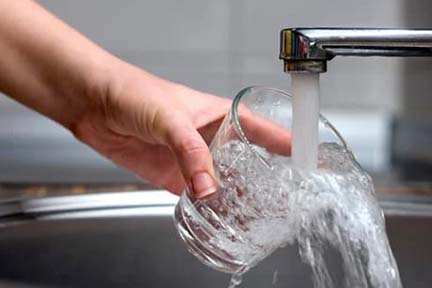

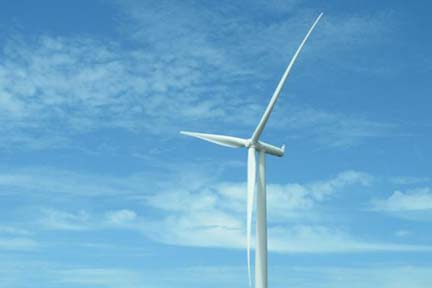

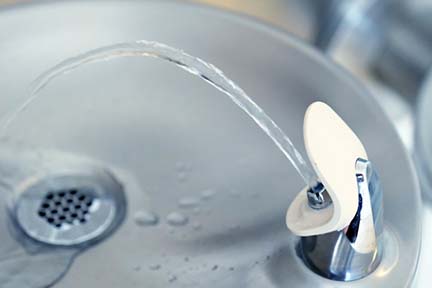
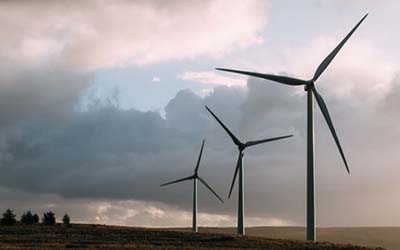
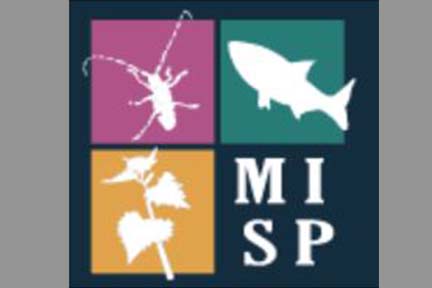

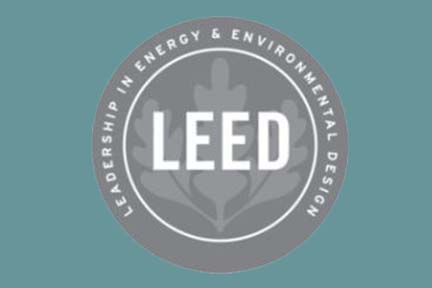
Pontiac, Mich. – The U.S. Green Building Council (USGBC) has certified all of Oakland County as LEED® Gold because of its commitment to improving holistic, county-wide sustainability practices.